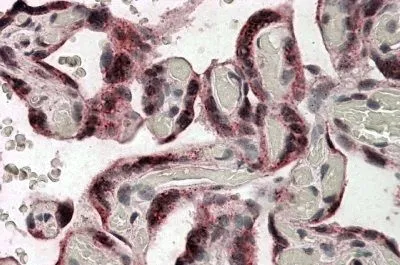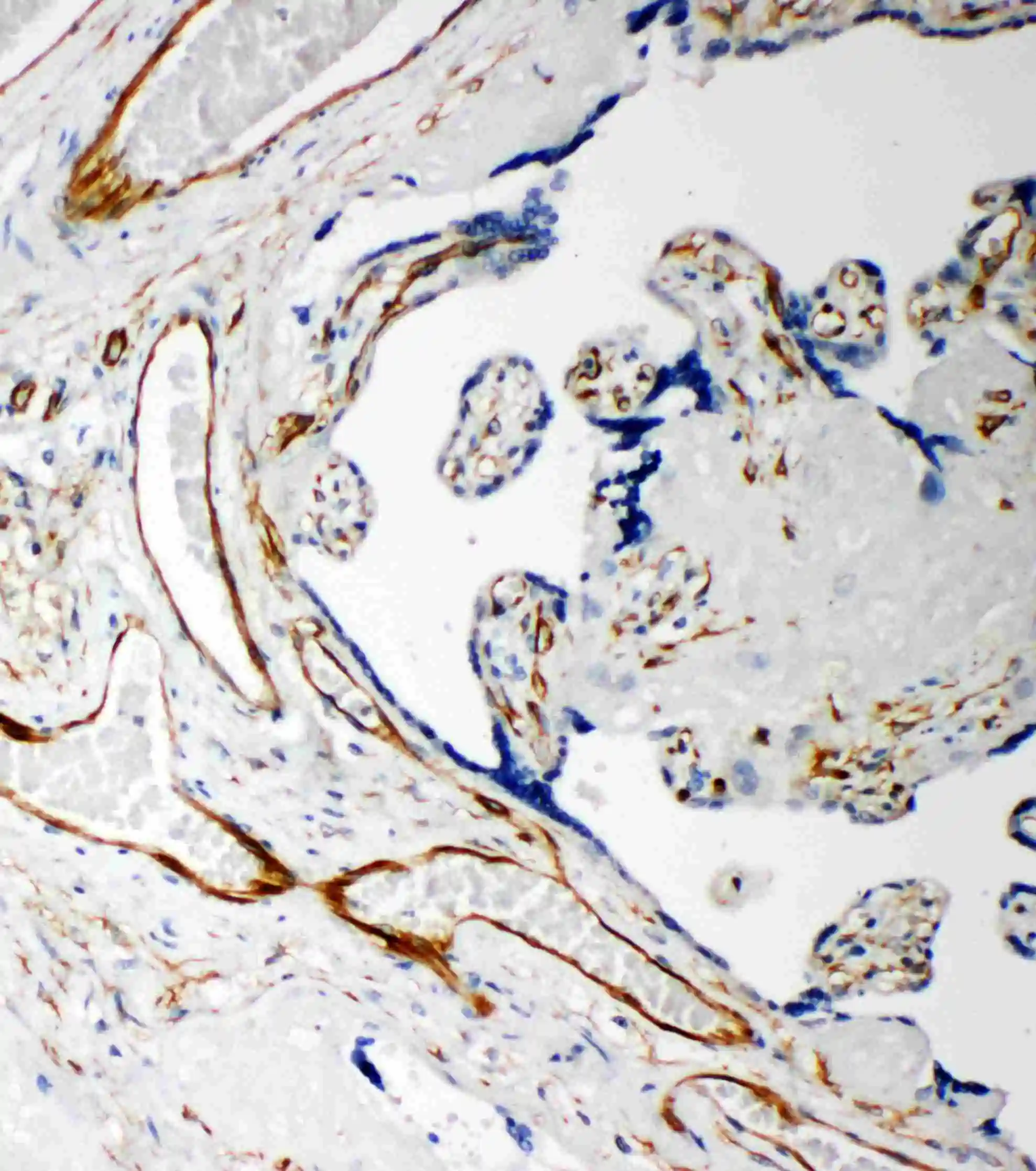
IHC-P analysis of human placenta using GTX88566 IDS antibody, Internal. Antigen retrieval : citrate buffer pH 6 Dilution : 3.8μg/ml
IDS antibody, Internal
GTX88566
ApplicationsWestern Blot, ImmunoHistoChemistry, ImmunoHistoChemistry Paraffin
Product group Antibodies
ReactivityHuman
TargetIDS
Overview
- SupplierGeneTex
- Product NameIDS antibody, Internal
- Delivery Days Customer7
- Application Supplier NoteWB: 0.1-0.3microg/ml. IHC-P: 3-5microg/ml. *Optimal dilutions/concentrations should be determined by the researcher.Not tested in other applications.
- ApplicationsWestern Blot, ImmunoHistoChemistry, ImmunoHistoChemistry Paraffin
- CertificationResearch Use Only
- ClonalityPolyclonal
- Concentration0.50 mg/ml
- ConjugateUnconjugated
- Gene ID3423
- Target nameIDS
- Target descriptioniduronate 2-sulfatase
- Target synonymsID2S, MPS2, SIDS, iduronate 2-sulfatase, alpha-L-iduronate sulfate sulfatase, iduronate 2-sulfatase 14 kDa chain, iduronate 2-sulfatase 42 kDa chain, idursulfase
- HostGoat
- IsotypeIgG
- Protein IDP22304
- Protein NameIduronate 2-sulfatase
- Scientific DescriptionThis gene encodes a member of the sulfatase family of proteins. The encoded preproprotein is proteolytically processed to generate two polypeptide chains. This enzyme is involved in the lysosomal degradation of heparan sulfate and dermatan sulfate. Mutations in this gene are associated with the X-linked lysosomal storage disease mucopolysaccharidosis type II, also known as Hunter syndrome. Alternative splicing results in multiple transcript variants, at least one of which encodes a preproprotein that is proteolytically processed. [provided by RefSeq, Jan 2016]
- ReactivityHuman
- Storage Instruction-20°C or -80°C,2°C to 8°C
- UNSPSC41116161






